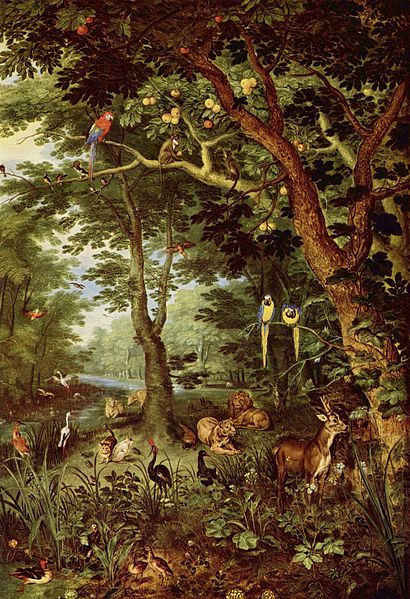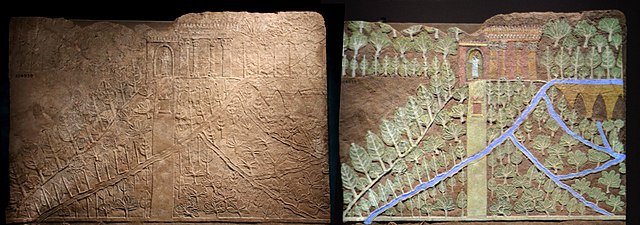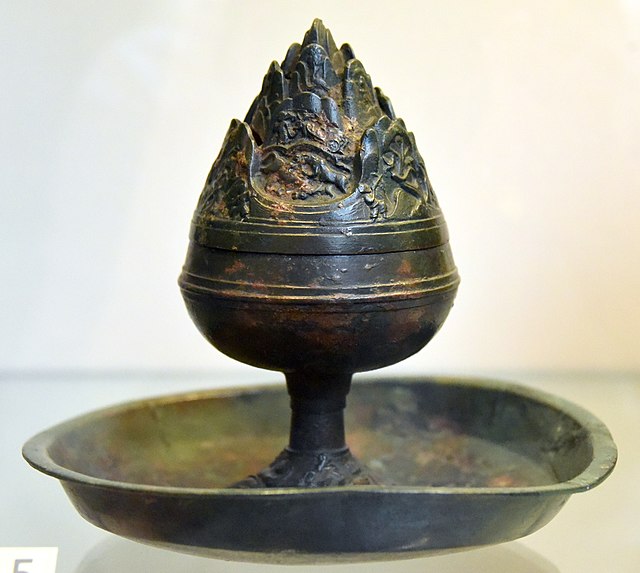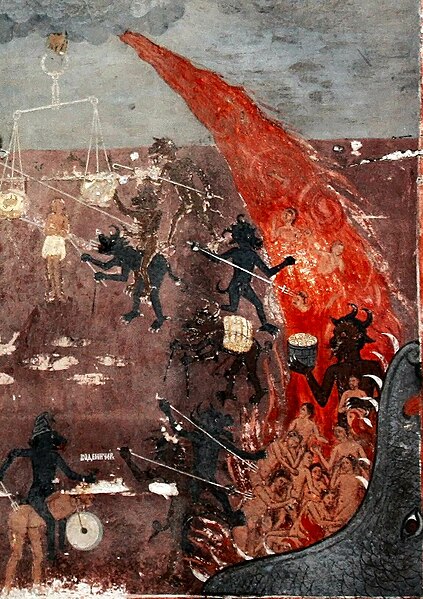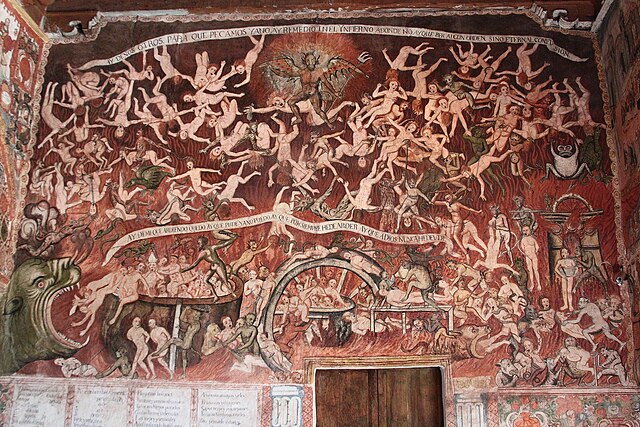In religion, paradise is a place of exceptional happiness and delight. Paradisiacal notions are often laden with pastoral imagery, and may be cosmogonical or eschatological or both, often compared with the miseries of human civilization: in paradise there is only peace, prosperity, and happiness. Paradise is a place of contentment, a land of luxury and fulfillment containing ever-lasting bliss. Paradise is often described as a "higher place", the holiest place, in contrast to this world, or underworlds such as Hell.
Paradise by Jan Bruegel
The luxurious palace and gardens of Neo-Assyrian king Ashurbanipal (ruled 668–631 BCE) at Nineveh, with original color reconstitution. Irrigation canals radiate from an aqueduct. The king appears under the porch. British Museum.
Incense burner, sometimes called a "hill censer" because of its shape (Mountains of Paradise, Bo Mountain, a paradise inhabited by immortals and mythical animals). Eastern Han dynasty, 25–220 CE. From China. Victoria and Albert Museum
Nicolas Poussin, Four seasons of paradise, 1660–1664
In religion and folklore, hell is a location or state in the afterlife in which souls are subjected to punitive suffering, most often through torture, as punishment after death. Religions with a linear divine history often depict hells as eternal destinations, the biggest examples of which are Christianity and Islam, whereas religions with reincarnation usually depict a hell as an intermediary period between incarnations, as is the case in the Indian religions. Religions typically locate hell in another dimension or under Earth's surface. Other afterlife destinations include heaven, paradise, purgatory, limbo, and the underworld.
Medieval illustration of hell in the Hortus deliciarum manuscript of Herrad of Landsberg (about 1180)
Hell – detail from a fresco in the medieval church of St Nicholas in Raduil, Bulgaria
Preserved colonial wall paintings of 1802 depicting Hell, by Tadeo Escalante, inside the Church of San Juan Bautista in Huaro, Peru
In this ~1275 BC Book of the Dead scene the dead scribe Hunefer's heart is weighed on the scale of Maat against the feather of truth, by the canine-headed Anubis. The ibis-headed Thoth, scribe of the gods, records the result. If his heart is lighter than the feather, Hunefer is allowed to pass into the afterlife. If not, he is eaten by the crocodile-headed Ammit.

